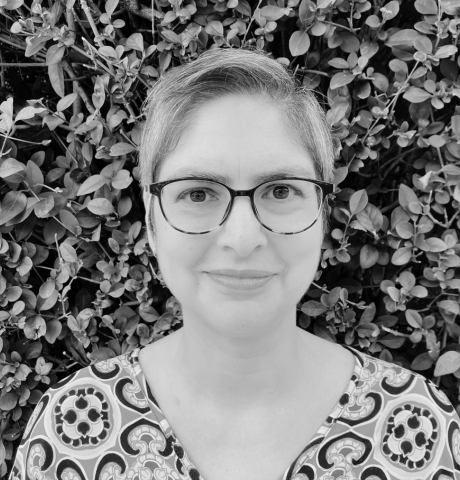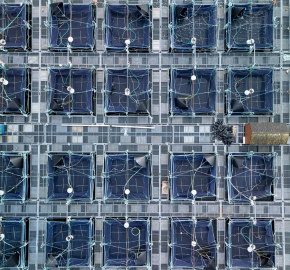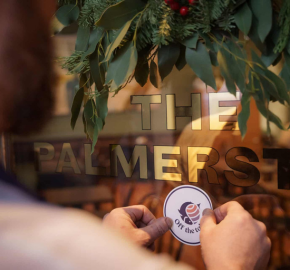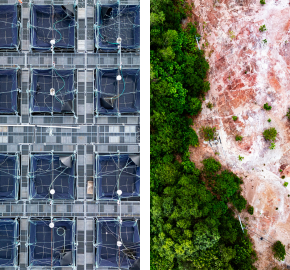Organic September: Can farmed salmon ever be “organic”?
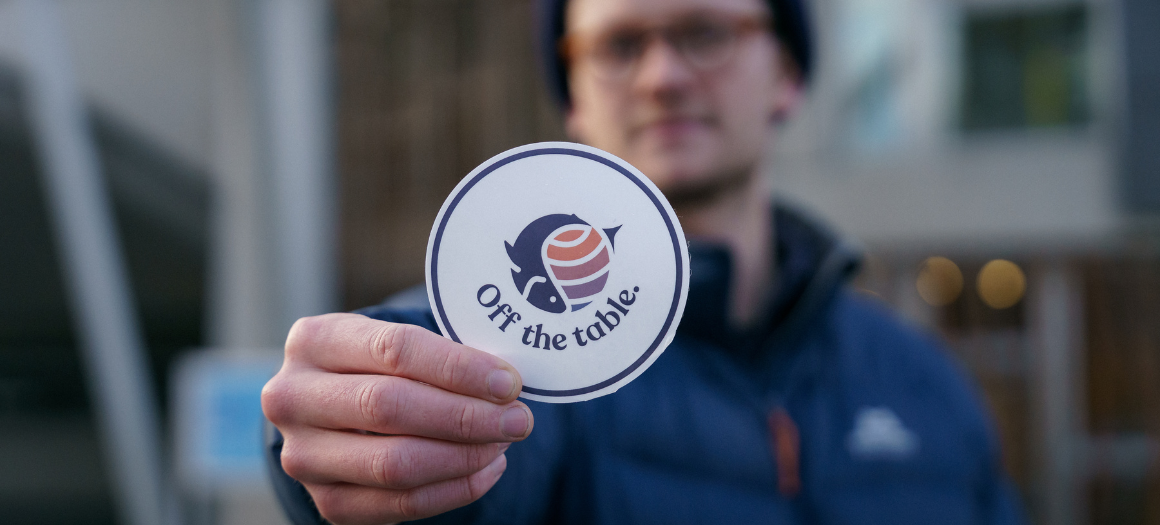
Organic September is an annual campaign in the UK, led by the Soil Association, to raise awareness of the benefits of organic food and farming. It’s a celebration of healthy food produced in a way that works with nature, protects animals and looks after the environment. Choosing organic feels like an easy win in the supermarket. Better for animals, better for people, better for the planet?
But when it comes to salmon, it’s not so straightforward.
Scottish salmon is often labelled to make it look like a responsible choice. Labels reading “organic”, “assured” or “certified” imply that fish are farmed to high standards. The reality is very different. Certification has become a way to dress up a fundamentally unsustainable industry.
Salmon farming is an environmental disaster
Salmon farming in Scotland has grown rapidly in the last fifty years. Today, it produces around 185,000 tonnes of fish each year. The fish are kept in open-net pens in sea lochs and coastal waters, not unlike factory farms on land. All the waste from the farms flows straight into the waters around them, including uneaten food, faeces and chemicals.
Salmon farming is one of the most environmentally damaging forms of food production in the UK for several reasons, including:
1. Disease and Parasites: Farms are a breeding ground for disease and parasites like sea lice. Sea lice cause painful wounds and increased stress to farmed salmon, but also spread into the wider environment, infecting wild salmon and sea trout populations and killing juvenile fish. Wild salmon populations in the UK are already at risk of extinction, and salmon farming is a notable cause of their decline.
2. Pollution: Toxic chemicals and waste matter is discharged into the surrounding waters, damaging the environment and killing wildlife.
3. Fish welfare: Stocking densities in pens are high, and this leads to disease outbreaks. Farms respond with chemical or physical treatments, but both approaches have serious welfare costs. Mass mortality events are now a regular feature of the industry, sometimes wiping out hundreds of thousands of farmed fish in weeks.
Is certification the answer?
Despite these problems, farmed salmon continues to be sold as a “responsible”, “sustainable” and sometimes as an “organic” choice. This is made possible by certification schemes. These were designed to fill gaps in regulation and to reassure consumers that what they are buying meets high standards.
In theory, certification pushes the industry to do better. In practice, that is not always the case. Salmon farming is a good example.
You may spot three main certification schemes when shopping in the supermarket: Soil Association “Organic”, Aquaculture Stewardship Council “Responsibly Farmed”, and RSPCA “Assured”. It is reasonable to assume that such labels would guarantee that you are buying a product which has been farmed to the highest standards. In reality, these schemes certify farms where serious problems continue including:
1. Open net cages: “Organic” farms still use open-net cages that allow pollution and parasites to leak into the surrounding waters.
2. Stocking density: While some schemes emphasise welfare, they still permit high stocking densities, routine mortality and severe parasite infestations. Mortality rates of 20% or higher in a production cycle are not unusual, yet certification of these farms remains in place.
3. Disease control: Farms rely on methods to control sea lice, like thermal and hydro treatments, that can be highly stressful for the farmed fish or even cause mortalities. Even when chemical usage is restricted, farms remain dependent on products such as deltamethrin, a chemical so toxic that small discharges can wipe out benthic marine life, particularly crustaceans, in the waters surrounding farms.
4. Fish feed: Organic standards require a portion (40%) of feed to come from fish-based ingredients. In practice, this means that farming salmon puts extra pressure on already overfished seas, often in regions where local communities rely on wild fish as a vital source of protein and for local employment. Even where aquaculture by-products are prioritised, whole fish from “sustainably certified” fisheries are still allowed. The very same “sustainably certified” fisheries which have previously been exposed for using destructive fishing practices such as bottom trawling and dredging for the majority of their catches.
Certification schemes are often promoted as a solution. But, they fall short for several reasons:
- They legitimise a harmful system that allows supermarkets and restaurants to market salmon as sustainable when it is anything but.
- They mislead consumers who see “organic” or “responsibly farmed” and assume a high standard of production. In reality, the differences between certified and uncertified farms are often small.
- The schemes shift responsibility. Instead of making tough decisions about what to stock or serve, supermarkets and other providers can hide behind a label.
So, if certification is not the answer, what is?
Taking farmed salmon Off the table
The honest answer is that there is no certification scheme or label that can make the production of open-net farmed salmon sustainable.
That’s why we launched Off the table. A campaign urging chefs, restaurants and consumers to stop serving, eating and buying farmed salmon. Already, more than 250 restaurants, food outlets and writers have signed up, alongside a network of over 50 supporting community groups and NGOs.
Chef and Off the table supporter Lloyd Morse of The Palmerston, Edinburgh said:
“Chefs across the UK need to understand how atrocious farmed salmon is. It shouldn’t be in our waters and it shouldn’t be in our restaurants”.
This Organic September, make a change to your supermarket shop
Organic September encourages us to think carefully about what we eat. Rather than trusting labels that greenwash the industry, this September take farmed salmon off your table.
Be part of a growing movement calling for real change, and together let’s send a clear message: no version of farmed salmon is sustainable.
Here are two actions that you can take to make a difference:
1. Take farmed salmon off your weekly menu and food shop.
2. Use the Off the table directory to choose from hundreds of delicious destinations that are salmon-free.
To learn more about the issues raised in this blog, read our investigation into the certification of Scottish salmon farming.

